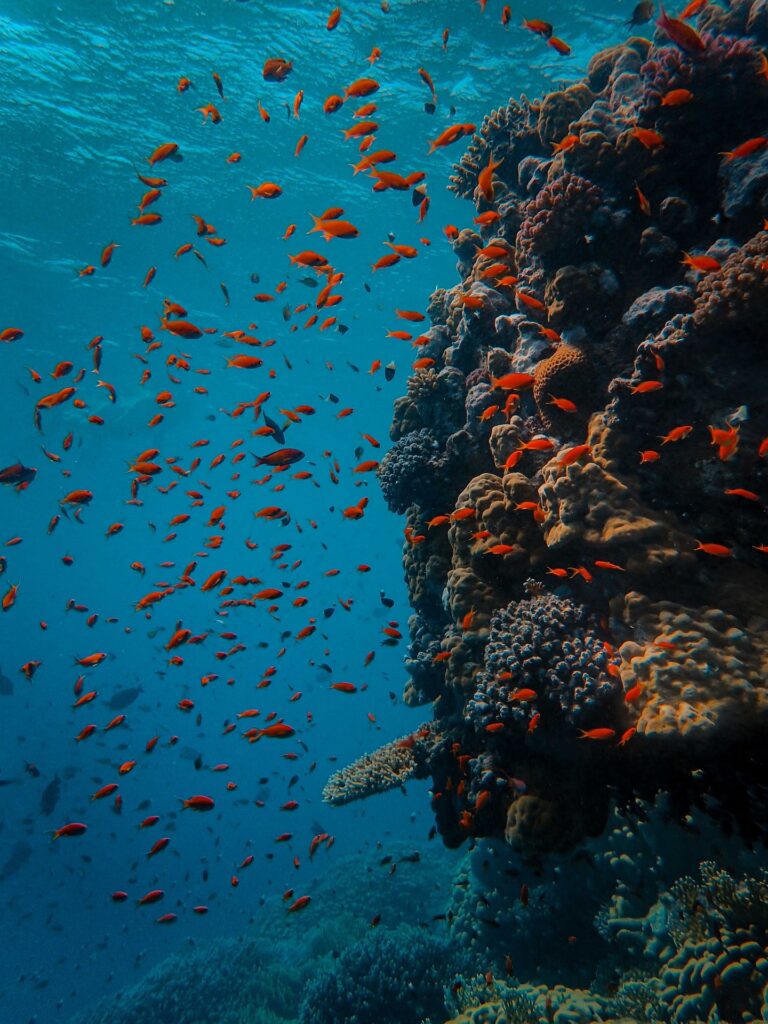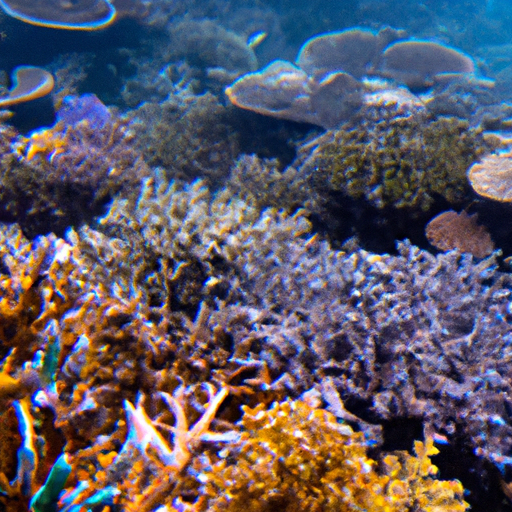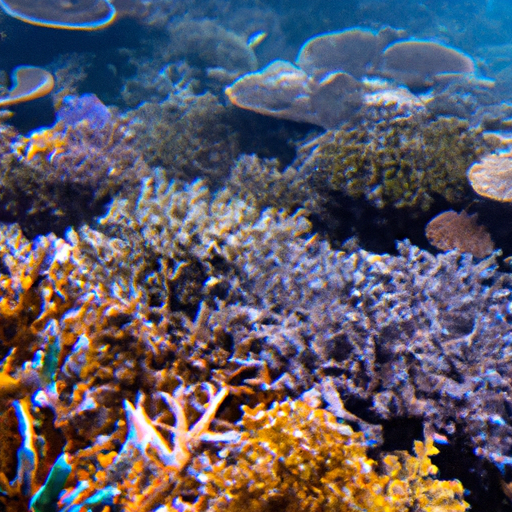Coral reefs are not just vibrant and mesmerizing ecosystems; they play a vital role in maintaining the health of our planet. As underwater communities teem with life, they provide shelter, food, and breeding grounds for countless species. Additionally, coral reefs act as coastal barriers, protecting shorelines from erosion and storm damage. However, these magnificent environments are under constant threat from pollution, climate change, and overfishing. In order to preserve these underwater wonders for future generations, it is crucial that we take immediate action to protect our coral reefs. But why is it important to protect our coral reefs? Read on!
Why Is It Important To Protect Our Coral Reefs: Importance of Coral Reefs
Coral reefs are incredibly important for several reasons, as they serve as biodiversity hotspots, have significant economic significance, provide coastal protection, act as carbon sinks, and are major attractions for tourism and recreation activities.
Biodiversity Hotspots
Coral reefs are among the most diverse ecosystems on Earth, teeming with a wide array of marine species. They support approximately 25% of all marine life, despite occupying less than 0.1% of the ocean’s surface. Coral reefs provide a habitat for millions of species, including fish, invertebrates, and microorganisms, forming a delicate web of life crucial for the overall health of our oceans.
Economic Significance
Coral reefs play a vital role in supporting the economy in many coastal communities around the world. Fisheries that rely on coral reefs contribute significantly to local food security, providing livelihoods and income for millions of people. Additionally, coral reefs boost the tourism industry as popular destinations for scuba diving, snorkeling, and other recreational activities. The revenue generated from tourism helps support conservation efforts and local economies.
Coastal Protection
Coral reefs act as a natural barrier, protecting coastlines from the devastating impact of storms, cyclones, and hurricanes. The complex structure of coral reefs reduces wave energy by dissipating the force of oncoming waves, which helps prevent erosion and safeguard vulnerable coastal communities. Without coral reefs, shorelines would become more prone to erosion and flooding, damaging infrastructure and habitats.
Carbon Sink
Coral reefs are essential in combating climate change due to their ability to act as carbon sinks. They contribute to climate regulation by removing carbon dioxide from the atmosphere and storing it in their calcium carbonate structures. By sequestering carbon, coral reefs help mitigate the impacts of rising greenhouse gas emissions and ocean acidification, playing a crucial role in maintaining the overall health and stability of our planet.
Tourism and Recreation
Coral reefs are a magnet for tourists and recreational enthusiasts, attracting millions of visitors each year. Scuba diving and snorkeling in pristine coral reef ecosystems offer unforgettable experiences, allowing individuals to explore the vibrant underwater world and witness its breathtaking beauty. Other activities such as boating, sailing, beach-going, and sunbathing are also popular among tourists who flock to coral reef destinations. These activities not only contribute to the economy but also raise awareness about the importance of conserving these fragile ecosystems.
Threats to Coral Reefs
Despite their significance, coral reefs worldwide are facing numerous threats that jeopardize their existence. These threats include climate change, ocean acidification, pollution, overfishing, and destructive practices, which can have devastating consequences on the health and survival of coral reefs.
Climate Change
Coral reefs are highly vulnerable to the impacts of climate change, particularly the rising sea temperatures. As waters warm, coral bleaching events become more frequent and severe, causing corals to expel the algae living within their tissues, leading to their eventual death. The increased frequency and intensity of storms and hurricanes associated with climate change further damage coral reefs, disrupting their delicate balance and hindering their ability to recover.
Ocean Acidification
The absorption of excess carbon dioxide by the oceans results in ocean acidification, which poses a significant threat to coral reefs. As carbon dioxide dissolves in seawater, it forms carbonic acid, causing a decrease in ocean pH. This acidic environment makes it increasingly difficult for corals and other marine organisms to build and maintain their calcium carbonate structures, hindering their growth and survival.
Pollution
Pollution, particularly from land-based sources, poses a significant threat to coral reefs. Runoff containing sediments, nutrients, and chemicals from agricultural and industrial activities can smother corals, limit their access to sunlight, and contribute to the growth of harmful algae that can harm coral health. Additionally, the discharge of pollutants such as plastics, oils, and toxins directly into the ocean can have detrimental effects on coral reefs and the organisms that depend on them.
Overfishing
Overfishing disrupts the delicate ecological balance within coral reef ecosystems. Targeted fishing of certain species, such as herbivorous fish, can result in an overabundance of algae, which can outcompete and smother corals. Additionally, the removal of apex predators disrupts the natural food chain, leading to imbalances and the potential collapse of reef ecosystems. Sustainable fishing practices that provide for the long-term viability of fish populations are crucial for maintaining the health and resilience of coral reefs.
Destructive Practices
Certain destructive practices, such as dynamite fishing, coral mining, and unsustainable tourism practices, pose severe threats to coral reefs. Dynamite fishing involves the use of explosives to stun or kill fish, but it also destroys the delicate coral colonies, disrupting the entire ecosystem. Coral mining involves the removal of coral for construction and decorative purposes, directly impacting the integrity and health of the reefs. Unsustainable tourism practices, such as reef trampling, anchoring on coral, and negligent waste disposal, can cause physical damage to coral reefs and degrade their overall condition.

Check Out Our Top Eco Friendly Product Picks On Amazon Here
Why Is It Important To Protect Our Coral Reefs: Conservation Strategies
To protect and preserve coral reefs for future generations, it is crucial to implement effective conservation strategies that address the various threats and challenges they face. These strategies include the establishment of marine protected areas, adoption of sustainable fishing practices, reduction of pollution, coral reef restoration efforts, and education and awareness initiatives.
Marine Protected Areas (MPAs)
Marine protected areas play a vital role in safeguarding coral reefs and their associated biodiversity. MPAs are designated zones that offer legal protection to marine ecosystems, limiting destructive activities, and preserving the habitats and species within. By effectively managing human activities, MPAs help restore coral reef health, promote sustainable fishing practices, and support the recovery of degraded reefs.
Sustainable Fishing Practices
Adopting sustainable fishing practices is essential for maintaining the health and productivity of coral reef ecosystems. Implementing measures such as size limits, fishing quotas, and protected areas can help ensure the long-term viability of fish populations. By promoting sustainable fishing practices, we can reduce overfishing pressure, maintain the ecological balance within coral reef ecosystems, and safeguard the livelihoods of those dependent on reef fisheries.
Reducing Pollution
To mitigate the impacts of pollution on coral reefs, it is crucial to reduce pollution from both land-based and marine sources. Implementing effective waste management systems, promoting responsible agricultural practices, and regulating the discharge of pollutants into the ocean are essential steps in reducing the pollution that can harm coral reefs. Additionally, public awareness campaigns can encourage individuals to adopt practices that minimize waste production and promote environmentally friendly behaviors.
Coral Reef Restoration
Coral reef restoration initiatives aim to restore damaged or degraded reefs through various techniques, including coral transplantation, artificial reef creation, and coral breeding programs. These efforts help rebuild the structure and functionality of coral reef ecosystems, supporting the recovery of damaged reefs and enhancing their resilience to future threats. By actively restoring coral reefs, we can contribute to the long-term survival of these vital ecosystems.
Education and Awareness
Education and awareness play a crucial role in coral reef conservation. Environmental education programs can provide communities, especially younger generations, with knowledge and understanding about the importance of coral reefs and the threats they face. Community involvement in conservation efforts, such as citizen science projects or beach cleanups, fosters a sense of ownership and empowers individuals to take action. Conservation campaigns and initiatives can raise public awareness about the importance of sustainable practices and inspire a collective effort to protect and preserve coral reefs.
Biodiversity Hotspots
Coral reef ecosystems are exceptionally biodiverse, supporting an incredible array of marine species. These ecosystems are home to various types of marine life, including coral reef fish, invertebrates, and microorganisms, forming complex and interconnected food webs.
Coral Reef Ecosystems
Coral reef ecosystems are dynamic and highly productive environments. They are formed by colonies of coral polyps that secrete calcium carbonate skeletons, creating the intricate structures we associate with coral reefs. These ecosystems support a diverse range of organisms that have adapted to the conditions of coral reefs, making them incredibly biodiverse and productive.
Marine Species
Coral reefs support an immense number of marine species, making them biodiversity hotspots in the ocean. The intricate coral structures provide shelter, feeding grounds, and breeding sites for a wide variety of fish, crustaceans, mollusks, and other marine organisms. From vibrant tropical fish to large pelagic species, coral reefs serve as essential habitats, ensuring the survival and diversity of marine life.
Coral Reef Fish
Coral reef fish are incredibly diverse, both in terms of species richness and ecological roles. They come in a stunning array of colors, shapes, and sizes, forming intricate networks within the coral reef ecosystem. Some fish perform crucial roles as herbivores, consuming algae that compete with corals for space, while others act as predators, controlling populations of smaller fish and invertebrates. Coral reef fish interactions are vital for maintaining the balance and overall health of the ecosystem.
Invertebrates and Microorganisms
Beyond fish, coral reefs are also home to a wide range of invertebrates and microorganisms. Invertebrates such as sea cucumbers, crustaceans, and corals themselves play essential roles in coral reef ecosystems. Sea cucumbers, for example, help recycle organic matter, while crustaceans actively participate in nutrient cycling. Microorganisms, including bacteria and algae, form symbiotic relationships with corals and contribute to their growth and survival.

Why Is It Important To Protect Our Coral Reefs: Economic Significance
Coral reefs hold great economic significance, providing essential resources and supporting various economic sectors in coastal communities.
Fisheries and Food Security
Coral reefs are vital for sustaining fisheries and ensuring food security in many coastal regions. They provide an important source of protein and livelihood for millions of people worldwide. Fish caught from coral reef ecosystems contribute to local economies, providing income and sustenance for communities that depend on reef fisheries. The decline of coral reefs can have far-reaching impacts on food security, particularly in developing nations.
Tourism Industry
Coral reefs are major attractions for the tourism industry, drawing millions of visitors each year. The vibrant and diverse marine life, along with the unparalleled beauty of coral reef ecosystems, make them popular destinations for scuba diving, snorkeling, and other recreational activities. The revenue generated from tourism helps support local economies, creating jobs and funding conservation efforts to safeguard the long-term viability of these ecosystems.
Coastal Protection and Storm Mitigation
Coral reefs play a crucial role in coastal protection and mitigating the impacts of storms and hurricanes. The complex structure of coral reefs acts as a natural barrier, dissipating wave energy and reducing the force of oncoming waves that batter coastlines. By reducing the erosive power of waves, coral reefs help safeguard vulnerable coastal communities and infrastructure from the devastating impact of storms, helping to ensure the resilience and sustainability of coastal areas.
Pharmaceutical Potential
Coral reefs hold immense potential for pharmaceutical research and the development of life-saving medicines. Many marine organisms found in coral reef ecosystems produce chemical compounds that possess unique biological properties. These compounds could potentially lead to the discovery of new drugs, treatments, and therapies for various diseases and medical conditions. The preservation and conservation of coral reefs are essential not only for their ecological value but also for their potential contributions to human health and well-being.
Coastal Protection
One of the crucial functions of coral reefs is coastal protection, as they act as natural defenses against storms, cyclones, and hurricanes, providing a wide range of benefits to coastal communities and ecosystems.
Barrier against Storms
Coral reefs form a natural barrier along coastlines, absorbing the energy of powerful waves generated by storms and hurricanes. The intricate structure of reefs helps break up and reduce the force of oncoming waves, dissipating their energy before they reach the shore. This serves as vital protection for coastal communities, infrastructure, and valuable coastal ecosystems, preventing or mitigating the destructive impacts of storms.
Wave Dissipation
The complex structure of coral reefs actively contributes to wave dissipation. As waves approach a coral reef, they interact with the multitude of crevices, branches, and coral colonies, causing the wave energy to be dispersed and dissipated across the reef. This process reduces the strength and force of the waves, preventing or minimizing erosion and shoreline damage. By reducing wave energy, coral reefs help maintain the stability and integrity of coastal areas.
Shoreline Stabilization
Coral reefs play a critical role in stabilizing coastlines and preventing or reducing erosion. When waves approach the coast, the structure of reefs slows down the water, allowing sediments to settle and accumulate, contributing to the formation of beaches and coastal landforms. The presence of coral reefs helps maintain the natural balance between erosion and sediment deposition, ensuring the long-term stability of coastlines and protecting valuable coastal habitats.

Carbon Sink
Coral reefs are not only vital for marine biodiversity and coastal protection but also serve as significant carbon sinks, playing a crucial role in climate regulation and carbon sequestration.
Role in Climate Regulation
Coral reefs contribute to the regulation of global climate patterns. The functioning coral reef ecosystems help maintain stable oceanic and atmospheric conditions, influencing air and sea temperature, as well as precipitation patterns. By playing a role in climate regulation, coral reefs contribute to the overall health and stability of the planet’s climate system.
Carbon Sequestration
Coral reefs sequester carbon dioxide from the atmosphere through a process known as carbon sequestration. The corals and other marine organisms that calcify within the reef system absorb and store carbon dioxide in their calcium carbonate structures. This process helps remove carbon dioxide from the atmosphere, reducing its concentration and mitigating the impacts of climate change.
Coral Bleaching and Carbon Storage
Coral bleaching, a phenomenon exacerbated by climate change, has significant implications for carbon storage within coral reefs. When corals bleach and lose their symbiotic algae, their growth and calcification rates decline, reducing their ability to sequester carbon. If coral bleaching events become more frequent and severe, it could lead to a reduction in the capacity of coral reefs to act as carbon sinks and contribute to the overall imbalance in Earth’s carbon cycle.
Why Is It Important To Protect Our Coral Reefs: Tourism and Recreation
Coral reefs are among the most sought-after destinations for tourists and those seeking recreational activities in coastal areas.
Scuba Diving and Snorkeling
Scuba diving and snorkeling are incredibly popular activities that allow individuals to explore the incredible diversity and beauty of coral reef ecosystems. Diving beneath the surface, one can witness an underwater world teeming with colorful fish, vibrant corals, and fascinating marine life. The unique experience of swimming alongside these marine creatures in their natural habitat is both awe-inspiring and educational, leaving a lasting impression on visitors.
Boating and Sailing
Coral reefs also attract boating and sailing enthusiasts, who appreciate the serene beauty of these pristine oceanic landscapes. The opportunity to navigate through crystal-clear waters, surrounded by vibrant coral formations, creates a sense of tranquility and adventure. Coral reef destinations provide ample opportunities for boating and sailing, catering to individuals seeking both leisure and recreational activities in these breathtaking locations.
Beach-Going and Sunbathing
Coral reef destinations often feature stunning sandy beaches and picturesque coastlines, making them ideal locations for beach-goers and sun worshippers. The combination of warm tropical climates and the natural beauty of coral reefs creates an inviting environment for individuals seeking relaxation and enjoyment on the beach. The vibrant underwater world experienced firsthand while snorkeling or diving only enhances the appeal of these beach destinations.
Educational and Scientific Expeditions
Coral reef ecosystems also serve as valuable sites for educational and scientific expeditions. Students, researchers, and scientists from around the world visit coral reef destinations to study marine biodiversity, species interactions, and the impacts of environmental changes on coral reefs. These expeditions contribute to our understanding of these delicate ecosystems and help guide conservation efforts aimed at protecting and preserving coral reefs for future generations.

Why Is It Important To Protect Our Coral Reefs: Climate Change
Climate change poses a significant threat to coral reef ecosystems, resulting in rising sea temperatures, ocean warming and acidification, and increased frequency of coral bleaching events.
Rising Sea Temperatures
One of the most significant impacts of climate change on coral reefs is the rise in sea temperatures. Increased greenhouse gas emissions trap heat within the atmosphere, causing oceans to absorb more heat. As waters warm, corals become stressed and expel the colorful algae living within their tissues, leaving behind their white calcium carbonate skeletons. This phenomenon, known as coral bleaching, can lead to the decline and death of coral colonies if prolonged or severe.
Ocean Warming and Acidification
Climate change has led to increased ocean warming and acidification, both of which pose severe threats to coral reefs. Rising sea temperatures disrupt the delicate balance between corals and their symbiotic algae, leading to coral bleaching. Ocean acidification, caused by the absorption of excess carbon dioxide, makes it increasingly challenging for coral organisms to build and maintain their calcium carbonate structures, hindering their growth and long-term survival.
Coral Bleaching Events
Coral bleaching events, triggered by climate change, have become more frequent and severe in recent decades. Warm ocean temperatures stress the corals and cause them to expel their symbiotic algae, leaving them vulnerable to disease and death. When entire coral reefs experience bleaching, the vibrant colors fade, and the ecosystem’s health and biodiversity are compromised. The increased frequency and severity of bleaching events threaten the long-term survival of coral reefs worldwide, requiring urgent action to reduce greenhouse gas emissions and mitigate climate change impacts.
Education and Awareness
Education and awareness are essential components of coral reef conservation efforts, as they help foster a sense of responsibility and empower individuals to make informed decisions that support the preservation of these valuable ecosystems.
Environmental Education Programs
Environmental education programs play a vital role in raising awareness and promoting understanding of the importance of coral reefs. These programs, targeted at both local communities and visitors, provide information about the ecological significance of coral reefs, their threats, and the actions individuals can take to protect and preserve them. By educating the public and imparting knowledge, environmental education programs inspire individuals to become stewards of coral reefs and advocates for their conservation.
Community Involvement
Engaging local communities in coral reef conservation efforts is crucial for sustainable and long-term protection. By involving community members in decision-making processes, resource management initiatives, and monitoring activities, a sense of ownership and responsibility is fostered. Empowering communities to become actively involved in coral reef conservation encourages the adoption of sustainable practices and promotes collective efforts to protect and preserve these fragile ecosystems for future generations.
Conservation Campaigns
Conservation campaigns play a pivotal role in raising public awareness and mobilizing action for coral reef conservation. These campaigns use various communication strategies, such as social media, public events, and educational materials, to inform and engage the public. By sharing success stories, highlighting the importance of coral reefs, and showcasing the beauty of these ecosystems, conservation campaigns can inspire individuals to adopt sustainable practices and actively contribute to coral reef protection.
Why Is It Important To Protect Our Coral Reefs: Conclusion
In conclusion, the importance of protecting coral reefs cannot be overstated. They are biodiversity hotspots, economic contributors, coastal protectors, carbon sinks, and popular destinations for tourism and recreation. However, coral reefs face numerous threats, including climate change, ocean acidification, pollution, overfishing, and destructive practices. To ensure the survival of coral reefs, conservation strategies such as establishing marine protected areas, adopting sustainable fishing practices, reducing pollution, coral reef restoration efforts and education and awareness initiatives must be implemented. By working together to protect and preserve these fragile ecosystems, we can safeguard their invaluable ecological, economic, and societal benefits for future generations to enjoy.




